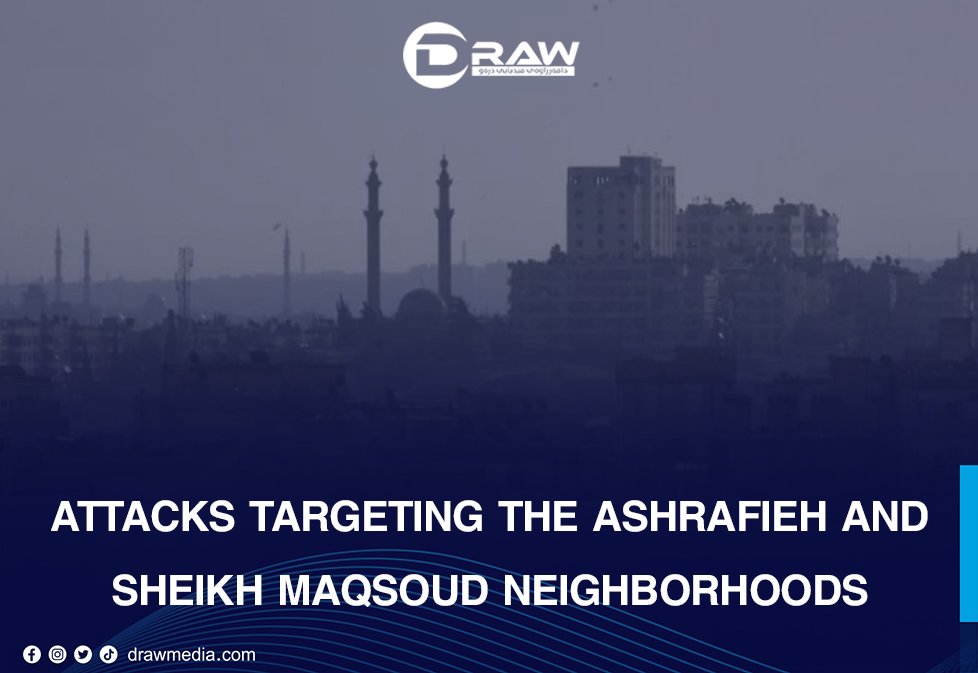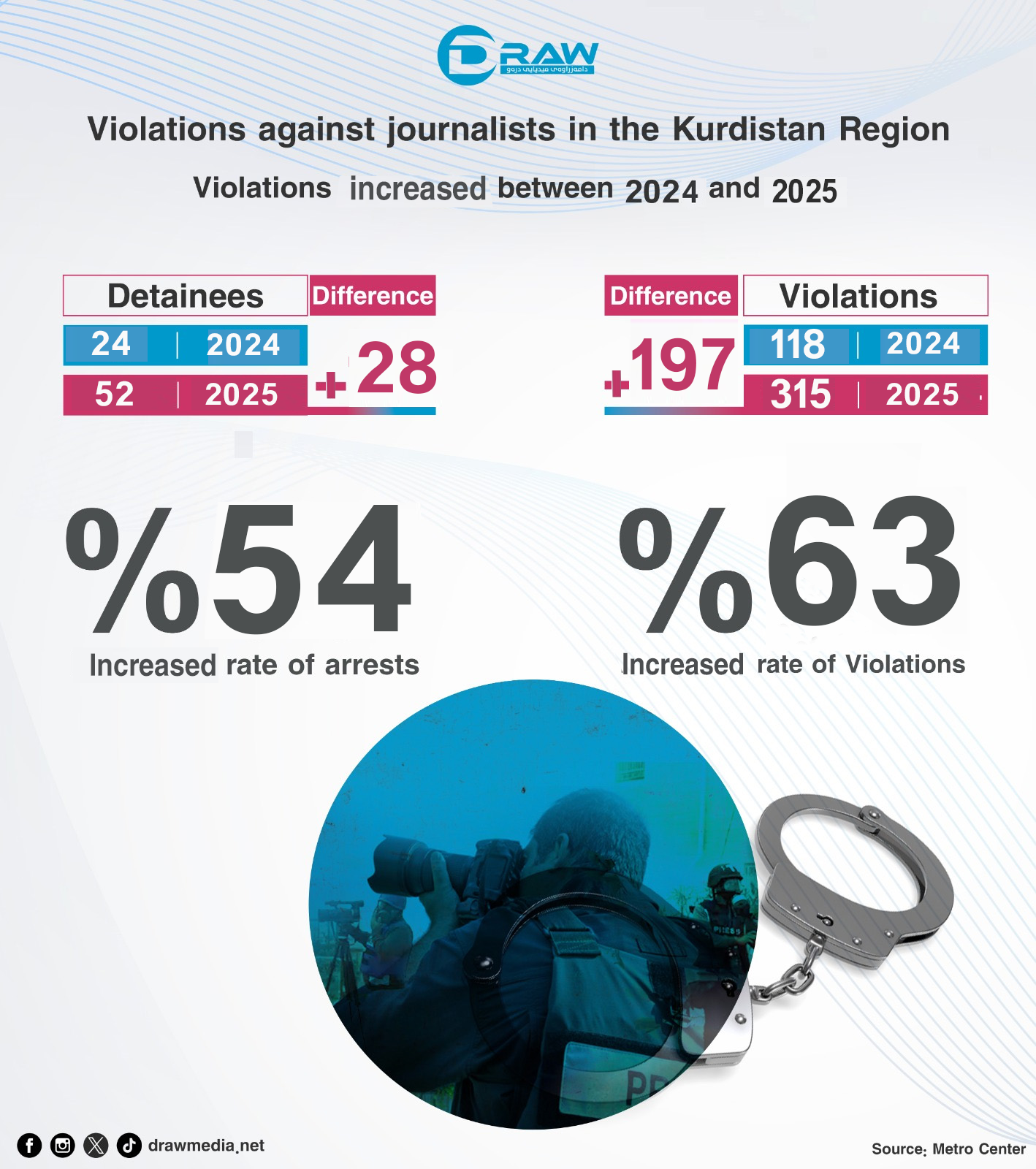Will Islamists in Iraqi Kurdistan help bolster the Kurdish cause in Syria?
.jpg)
2025-05-02 07:39:10
The political upheaval in Syria, marked by the fall of former president Bashar Al-Assad and the rise of Sunni Islamist rule, has potentially opened new doors for Islamists in Iraqi Kurdistan. Potentially aiming to piggy-back on ideological and political affinities with Syria’s new administration, such actors view the transition in Damascus as an opportunity to build alliances—and further leverage those links to advocate for Kurdish rights.
However, one pressing question remains: can cross-border outreach help ensure Kurdish political and cultural autonomy in Syria, or will such efforts only further complicate the political aspirations of Kurdish Islamists in Iraq? Critically, this follows significant losses by such actors in Iraqi elections in recent years, giving rise to marked introspection. Facing intense criticism that they privilege their Muslim identity over their Kurdish ethnicity, Iraq’s Kurdish Islamists risk stoking further censure if they hitch their political project to that of the new rulers in Damascus.
The praise of Iraq’s Kurdish Islamists
Kurdish Islamist parties in Iraq have wasted no time seeking to ingratiate themselves into the Syrian context since the fall of Assad last December. However, their divergent responses signal deep strategic divides within the movement, reflecting the distinct strands of Kurdish Islamism—shaped by decades of ideological evolution, factional splits and shifting alliances.
Perhaps the most bold outreach has come from Islamic Movement of Kurdistan (IMK) head Irfan Ali Abdulazeez, who only weeks after Assad’s downfall announced the reopening of his group’s offices in Damascus. Abdulazeez claimed the move aimed at “engaging in dialogue” to find “better solutions for the issues facing our Kurdish brothers.” He further emphasized his group’s historical ties with Syrian President Ahmed Al-Sharaa, although he did not elaborate on the nature of those ties. It has been suggested, however, that some of IMK’s cadres may have fought alongside Sharaa-led forces as far back as 2013, which were then known as the Nusrah Front.
For his part, Ali Bapir, the leader of the Kurdistan Justice Group—also known as Komal and itself a splinter group from IMK—is reported to have sent a congratulatory letter to Sharaa shortly after his takeover of Damascus. The letter further called on the Syrian leader to address several claimed injustices against Kurds under the previous Syrian regime, including the stripping of citizenship, marriage rights and work opportunities.
Such overtures may aim to serve a dual purpose, claiming a vested interest in Syrian and pan-Kurdish affairs while also opening privileged avenues to the new authorities in Damascus. This dynamic encapsulates the inherent balancing act of Iraq’s Kurdish Islamist parties: privileging roots in their Kurdish identity, while at the same time highlighting the Islamic character of their political vision.
Kurdish or Islamist?
The claimed cross-border affinities expressed by Iraqi Kurdish Islamists have also served as a liability. Both Abdulazeez and Bapir have long faced criticism over their ties to militant groups such as Al-Qaeda. Bapir was jailed for 22 months in a US-run detention facility near Baghdad after the American-led invasion of Iraq in 2003, over alleged ties to militants. He was only released after renouncing militancy and dedicating himself to political and religious outreach.
As a product of late-20th century transnational militant Islamism, both IMK and the Kurdistan Justice Group have also faced accusations from other Kurdish parties that they privilege their Islamist political visions over their ethnic roots. This accusation has seemingly proved effective, with observers pointing to their lackluster performance in Iraq’s Oct. 2023 provincial elections.
Hawkar Ali, a university professor in Sulaimaniya, told Amwaj.media that the Oct. 2024 Kurdistan Parliament elections were also disappointing for Islamist parties. Both the Kurdistan Justice Group, which won only three seats, and IMK, which failed to secure any seats, outright rejected the results alleging that the polls were manipulated.
According to Ali, the two groups likely believe that Iran and Turkey influenced the outcomes of the elections, thereby marginalizing their presence in the political landscape. Consequently, Abdulazeez and Bapir are now seeking to broaden their regional and international relationships, particularly through Syria, as a strategy to counteract this perceived regional neglect by regional powers—and to strengthen their influence on the regional stage.
Perhaps wary of this reality, not all of Iraq’s Kurdish Islamist groups seem so eager to reach out to the new Syrian administration. Muthanna Amin, leader of the Kurdistan Islamic Union (KIU), has expressed optimism about Sharaa’s seeming shift towards a more moderate position, while underscoring the shared principles between his own group and Syria’s new Islamist rulers.
Amin further noted that his movement aims to mediate peaceful solutions for Kurdish autonomy and broader disputes in Syria, likely aiming at positioning itself as a bridge between Sharaa’s government and the Kurdish-led Syrian Democratic Forces (SDF). While these organizations’ dual Kurdish-Islamist identity has often been seen as a liability, in this context it may prove to be an opportunity for them to act as privileged political interlocutors.
Regional context of cross-border outreach
To Iraq’s Kurdish Islamists, the opportunity to engage with Sharaa holds significant potential. Strong connections with the new Syrian government would surely prove a boon to their collective hope that the authorities in Damascus will rectify past wrongs, and provide Syrian Kurds with the recognition they were denied under Assad.
However, not all seem convinced that such a diplomatic role for Iraq’s Kurdish Islamist groups is appropriate. Aziz Raouf, an Iraqi Kurdish analyst, argues that individual political parties have no right to build relations with foreign governments and powers, saying that is the role of governments. Speaking to Amwaj.media, Raouf in parallel criticized homegrown Kurdish Islamists for failing to utilize their regional relationships, including with Iran and Turkey, to advance Kurdish interests.
If IMK and the Kurdistan Justice Group do hope to play a more central role in regional dynamics, broader engagement will be necessary given the complexities and cross-border nature of Kurdish issues. For example, in Syria a major point of contention is the future of the SDF, which played a vital role in the fight against the Islamic State group (IS) and also established autonomous rule in the northeast of the country.
However, to Turkey, the SDF is viewed as a direct extension of the Kurdistan Workers’ Party (PKK), a group designated as a terrorist organization by Ankara and several other governments. This creates a paradox for Kurdish Islamists who seek to mediate between the SDF and Sharaa’s administration, while potentially managing the geostrategic demands of Turkish interests both in Iraq and Syria. Unlike Kurdish Islamists’ relatively strong ties with Ankara, their relationships with the SDF remain confrontational, making any mediation attempt incredibly fraught.
A fragile opportunity
The key challenge for Kurdish Islamist factions in Iraq is to find a middle path. While a tall order, such a move could see their stock rise, both politically and electorally, by demonstrating their ability to act pragmatically on the regional stage.
Erbil-based researcher Payraw Anwar told Amwaj.media that Islamist political forces in the Kurdistan region of Iraq will be hard pressed to influence domestic policy in Syria on the Kurdish issue. He attributed this to fundamental ideological differences among Kurdish factions across the region, charging that "Islamist parties see religious identity above ethnic and national identity, while nationalist forces prioritize nationalism above religion."
Given these apparent dynamics, it seems that the success of outreach to Syrian actors by Iraqi Kurdish Islamists hinges on their ability to effectively leverage historical ties and ideological affinities. However, there are no guarantees that Sharaa will embrace any solution to the Kurdish issue in Syria that may come from Iraqi actors.
Ultimately, the potential for cooperation between Iraq’s Kurdish Islamist factions and Syria’s new leadership could be the key to resolving some of the longstanding issues facing Kurds in Syria. Whether this opportunity is seized, or falls victim to regional rivalries, will certainly play a role in shaping the future of Syrian Kurds.
https://amwaj.media/en/author/24504108
* Momen Zellmi is a political analyst, researcher and diplomatic consultant based in Erbil, Iraqi Kurdistan. He has a PhD in Language Education Policy and an MA in English language, and has published numerous works in the fields of politics, language and educational policy, gender, and culture.


.jpg)

.jpg)


.jpg)

.jpg)
.jpg)
